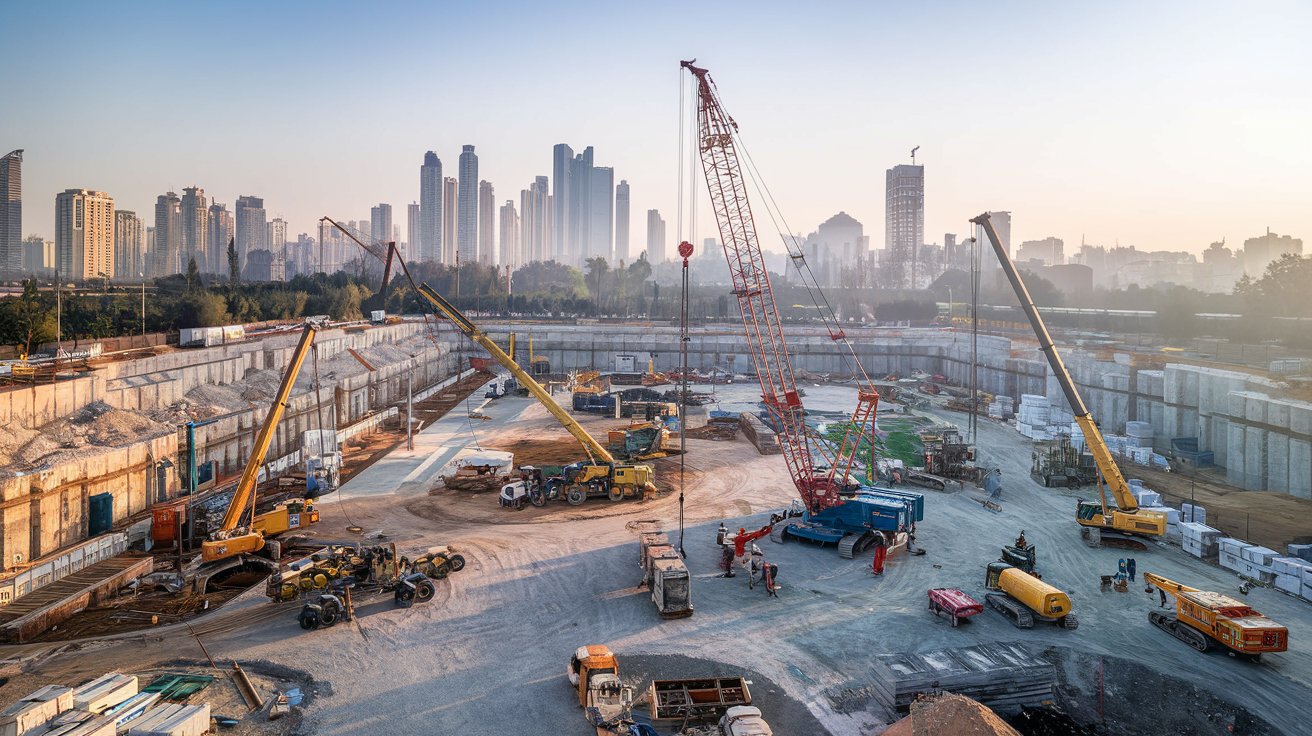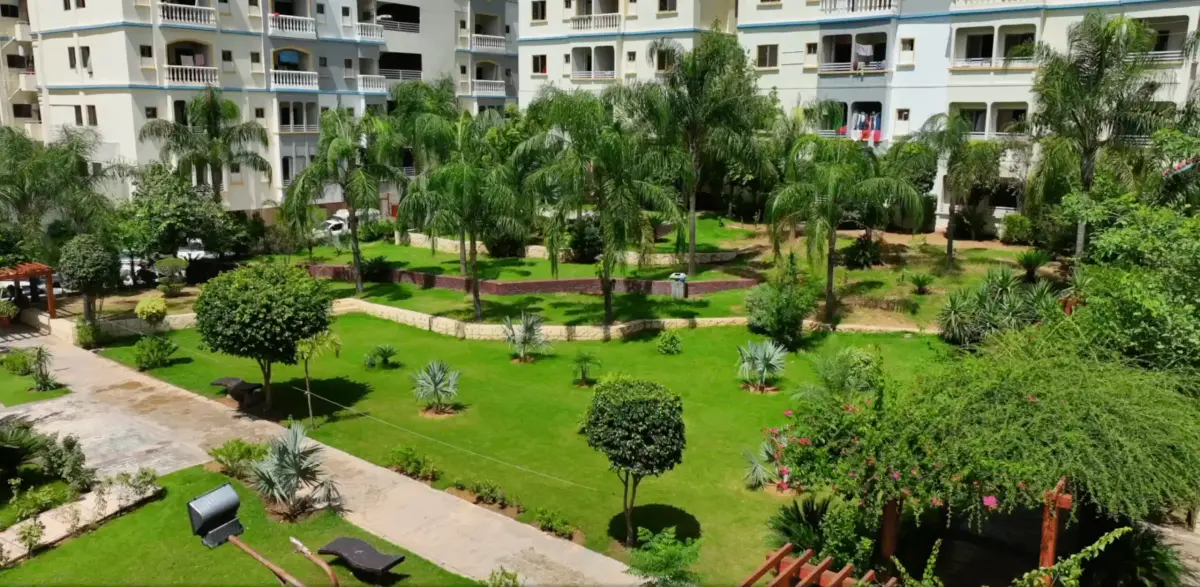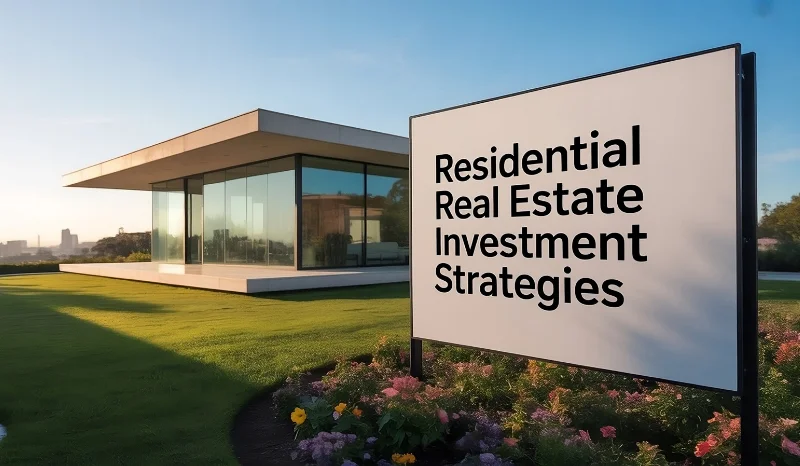The first property investment is a huge milestone in itself-in every way, an exciting and nerve-wracking experience. There is a sense of power in the consideration of owning property that is truly a rewarding asset, and with it comes a steep learning curve. Luckily, you have the opportunity to set yourself up for success over time with minimal risk by putting one foot before the other and making informed decisions along the way. This guide, whether for that little apartment or much-desired commercial space, walks you through making sure to get the best deal possible for your very first investment.
Understand Your Investment Goals
Before you jump into your first property investment, take a moment to pause and define what you want. The best investment starts with clarity.
- Are you looking for residential or commercial property?
- Is your goal to earn a steady rental income?
- Are you planning to flip for quick profit?
- Or perhaps you want long-term appreciation?
Residential vs. Commercial Investments
Indeed, investing in real estate provides various options to choose from. Beginner real estate investors typically find investing in residential properties to be more affordable and less risky compared to their counterparts. On the other hand, commercial properties promise higher returns but are more complex and riskier. As surmised from the Pakistan Bureau of Statistics, residential properties located in metropolitan cities like Lahore and Islamabad are appreciating around 8 to 10 percent per annum. In comparison, commercial properties located in the city’s central business districts are yielding rentals of more than 12%.
Real estate as an investment vehicle is multifaceted. So, think very carefully. Everything from the kind of property you purchase, its location, and the manner of financing is directly tied to your investment objectives
Research the Market Thoroughly
Once your goals are in place, roll up your sleeves, because solid research is your best ally.
- Is the area seeing a rise or fall in property value?
- Are there any infrastructure projects nearby?
- How are similar properties performing in terms of price and rental yield?
Take Islamabad’s DHA phase 2 as an example. It’s buzzing with demand due to modern infrastructure and reliable amenities. Therefore, a property purchased there could offer better returns compared to more remote localities.
Set a Realistic Budget
Now let’s talk numbers. Avoid the common trap of overextending your finances.
- Start with a clear idea of your down payment.
- Account for loan repayments if you’re using financing.
- Include taxes, maintenance, legal fees, and hidden costs.
By setting a realistic budget, you can avoid unpleasant surprises and keep your investment stress-free.
Choose the Right Location
In real estate, location isn’t just important, it’s everything.
- Look for proximity to schools, hospitals, transport, and shopping hubs.
- Investigate upcoming developments and infrastructure upgrades.
Take Goldcrest Views in DHA Phase 2 Islamabad, for instance. Thanks to its prime spot and modern amenities, properties there not only attract tenants but also fetch strong resale values.
Inspect the Property Thoroughly
A property might look great on paper, but never skip a physical inspection.
- Evaluate the structure and build quality.
- Confirm legal documentation is clean.
- Assess if any renovations or fixes are needed.
Hiring a qualified inspector can save you from making an expensive mistake later on.
Negotiate Smartly
Negotiation is more than just haggling; it’s a strategy.
- Use recent sales data of similar properties to support your offer.
- Mention necessary repairs to justify a price cut.
- Request value-adds like free maintenance for six months.
Done right, negotiation can boost your ROI significantly.
Understand the Legal Aspects
Legal due diligence might not be fun, but it’s vital.
- Always verify ownership and land title documents.
- Hire a legal consultant to vet the deal.
- Ensure the property complies with zoning regulations.
A little caution here can prevent major legal headaches later.
Explore Financing Options
If you’re not going all-in with cash, it’s time to shop for the best loan.
- Compare bank interest rates and loan terms.
- Look into government schemes for first-time buyers.
- Watch out for hidden fees or rigid clauses.
Securing favourable financing can ease your cash flow and make the investment more manageable.
Evaluate the Property’s ROI Potential
Before sealing the deal, step back and crunch some numbers.
- What rental income can you expect?
- Is the neighborhood stable or volatile?
- What is the projected value growth in 5 to 10 years?
Whether you’re buying a residential apartment for rent or a small shop in a commercial plaza, understanding your expected returns will help you gauge if it’s worth it.
Plan for Post-Purchase Management
Your job doesn’t end once you’ve got the keys.
- Will you manage tenants and maintenance yourself?
- Or would you prefer a property management company?
Whichever path you choose, efficient post-purchase management ensures your asset continues to grow in value and profitability.
Final Thoughts
Although buying your first property usually might require all the luck in the world, success in such an attempt does require strategy, insight, and preparation. Clear goals, understanding market trends, financing options, and other factors are used to arrive at wiser decision-making. Both residential and commercial properties have their own merits and demerits, and the best is that which fits in well with both personal and financial goals.
FAQs About First Property Investment
What are all the things you should consider before entering into the first ownership of a property?
Consider the investment goals, budget, preference of the location, and the fact that a property might better suit a person, whether residential or commercial.
How do I tell if a location is good for investment?
Look out for a good infrastructural network with proximity to other amenities that are taking shape to develop in the future.
What financing options do banks, government schemes, and private lenders provide for first-time investors?
Pick one whose interest rate is low and the terms are friendlier.
Why is it necessary to inspect property before buying?
They reveal underlying conditions that may devalue or cost vehicular maintenance in the future.
How to negotiate effectively while buying an investment property?
Use current market data to support your case, point out deficiencies for price leverage, and do not be afraid to ask for added perks.






